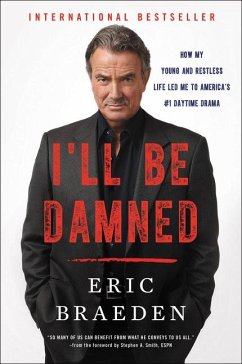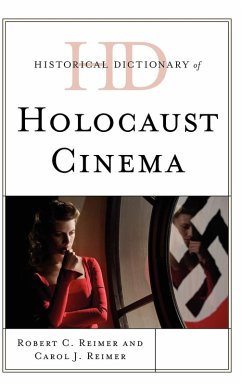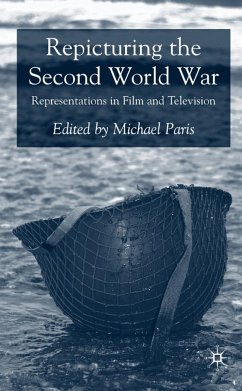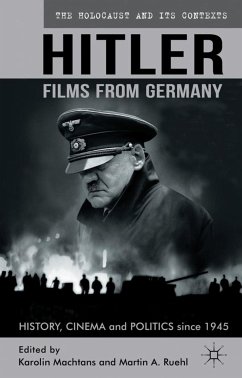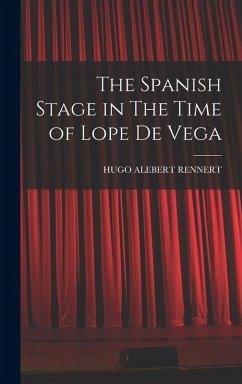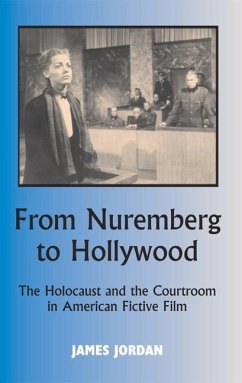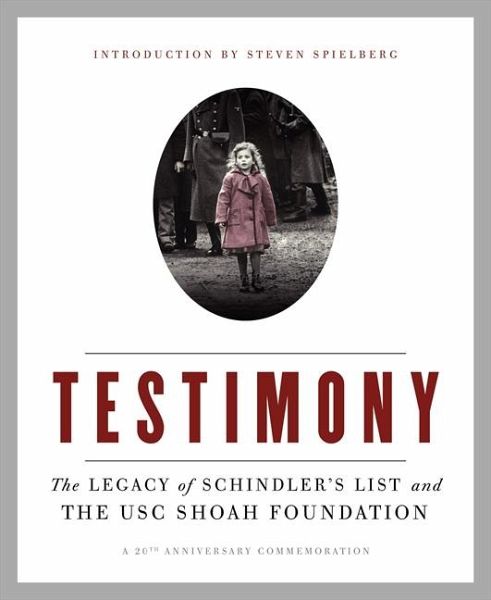
Testimony
The Legacy of Schindler's List and the USC Shoah Foundation

PAYBACK Punkte
18 °P sammeln!
Schindler's List was a success by any Hollywood measure and far surpassed all expectations for a black-and-white film about the Holocaust. Released in 1993, it won seven Oscars, including Best Picture and Best Director, and is ranked ninth in the American Film Institute's 100 Greatest American Movies. But its legacy is a far more enduring one. As director Steven Spielberg says, "The film was to be the prelude to the most important work of my life." Spielberg's encounters with Holocaust survivors who came to the filmmakers' location in Poland and told him their stories set him on a mission to c...
Schindler's List was a success by any Hollywood measure and far surpassed all expectations for a black-and-white film about the Holocaust. Released in 1993, it won seven Oscars, including Best Picture and Best Director, and is ranked ninth in the American Film Institute's 100 Greatest American Movies. But its legacy is a far more enduring one. As director Steven Spielberg says, "The film was to be the prelude to the most important work of my life." Spielberg's encounters with Holocaust survivors who came to the filmmakers' location in Poland and told him their stories set him on a mission to collect and preserve survivor testimonies so that these eyewitnesses could become teachers of humanity for generations to come. This twentieth-anniversary commemorative book presents, for the first time, the behind-the-scenes stories of the making of Schindler's List and the creation of the Shoah Foundation, the remarkable organization that Spielberg established twenty years ago. Drawing from the Universal Pictures archives and exclusive interviews, Part One portrays the filmmaking in dramatic black-and-white photographs that echo the film's acclaimed cinematography; in excerpts from the script and the Thomas Keneally novel; and in the words of the cast and crew, including Liam Neeson, Ben Kingsley, and Spielberg. Part Two relates how the Shoah Foundation, in its first four years, raced against time to videotape nearly 52,000 testimonies in 56 countries and 32 languages, while Holocaust survivors and witnesses were still alive to be interviewed. The book also describes in fascinating detail how this worldwide network of dedicated people used pioneering methods and state-of-the-art technologies to collect, index, and preserve the video recordings. With its Visual History Archive digitized, fully searchable, and hyperlinked to the minute, the foundation then developed countless ways to share the testimonies with the world, especially young people. Since joining the University of Southern California in 2006 and renamed the USC Shoah Foundation?The Institute for Visual History and Education, it expanded its educational initiatives as well as its mission, which is now collecting and preserving testimonies from the Armenian, Cambodian, and Rwandan genocides, as well as the Nanjing Massacre. The ultimate lesson of Schindler's List, and of the USC Shoah Foundation story, is rooted in the deeds of Oskar Schindler, who never planned on becoming a household name for heroism but acted out of his humanity to protect his Jewish workers. As Spielberg writes in his introduction, "One person can change the world, and that person is you."





